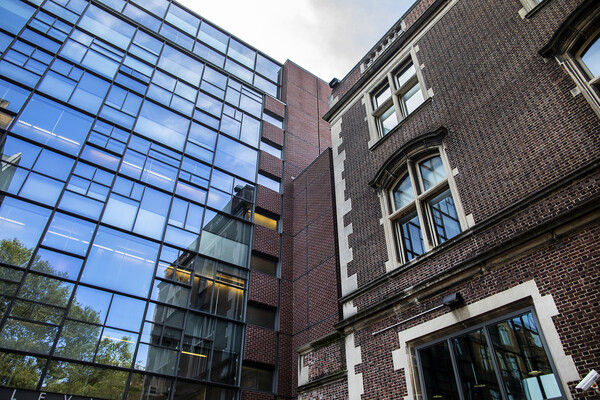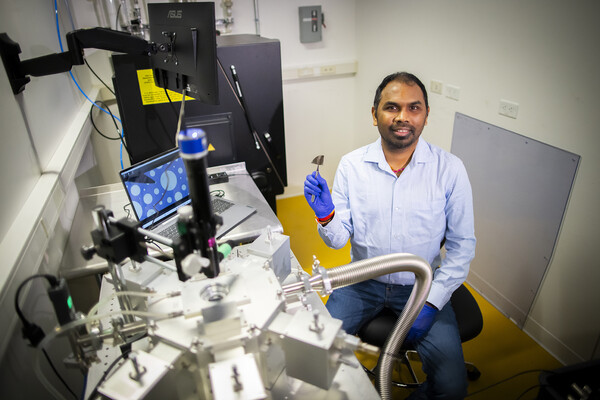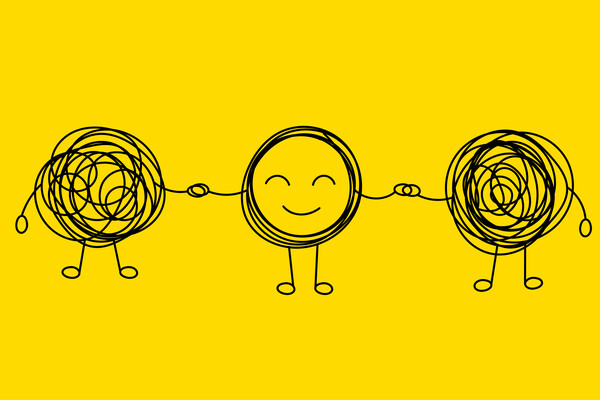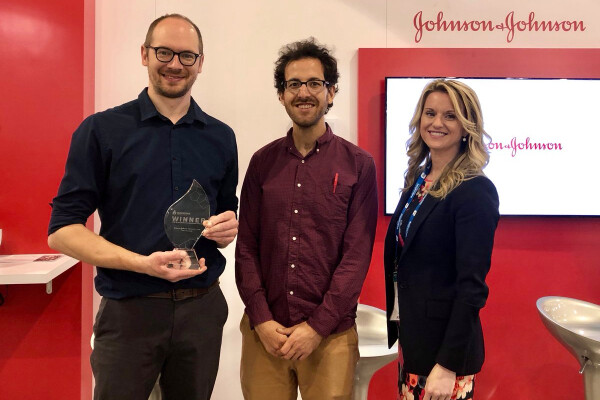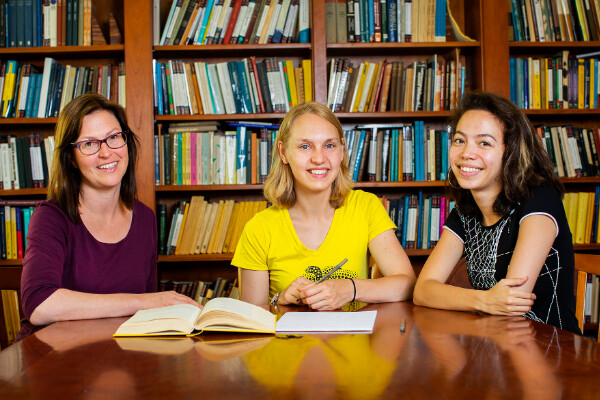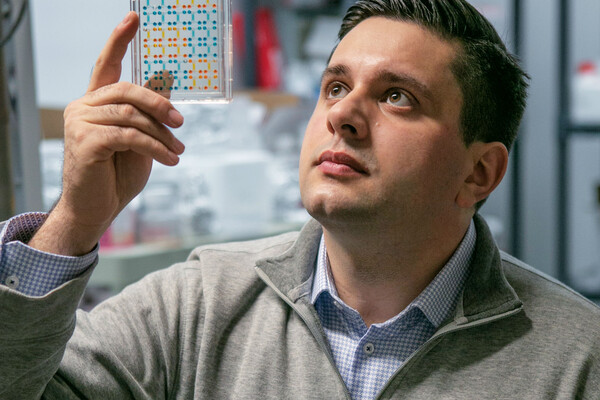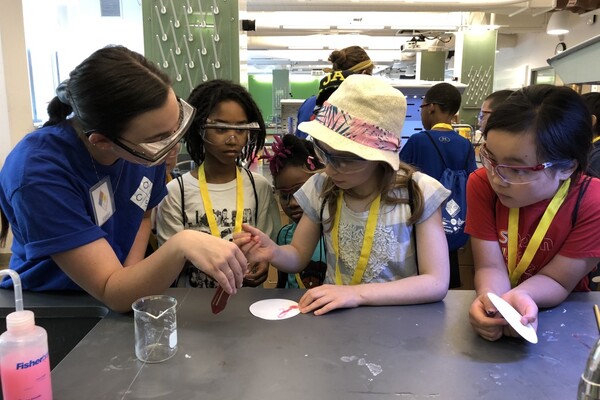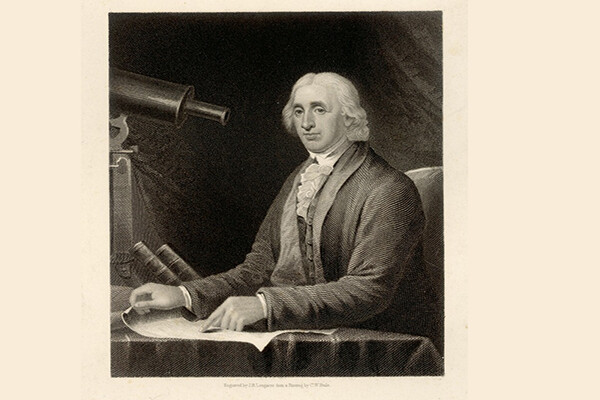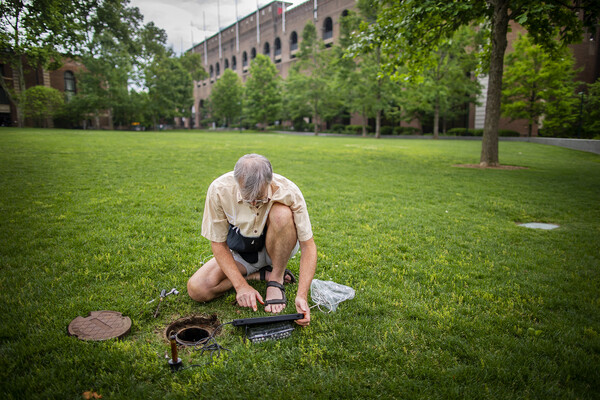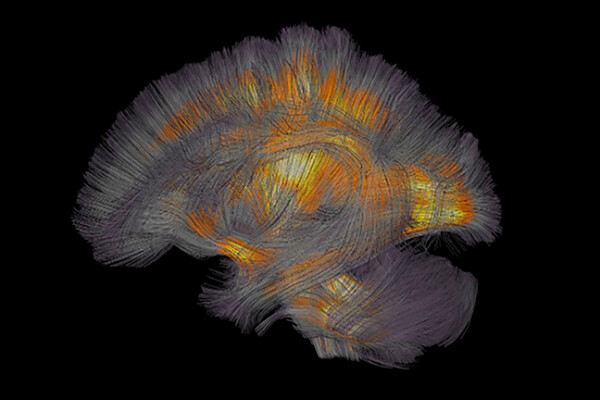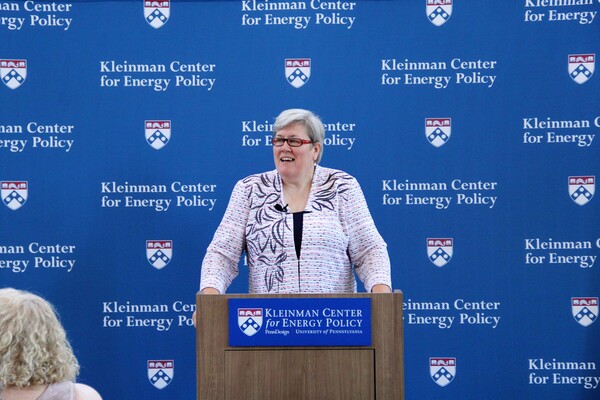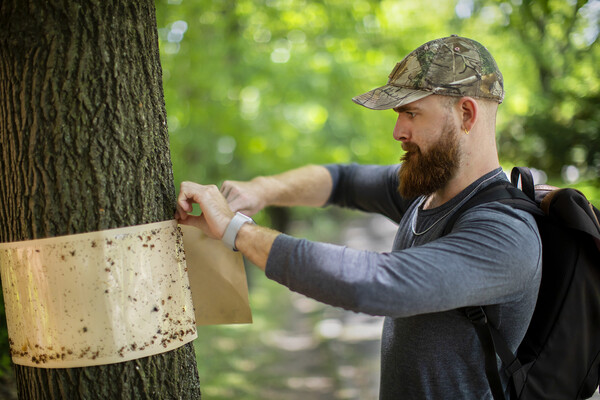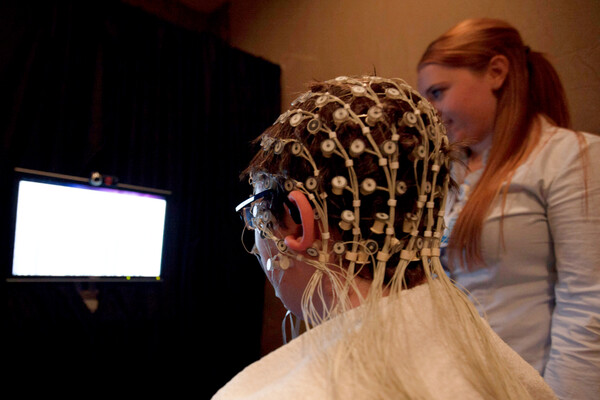5/2
Science & Technology
Chip Diagnostics receives the JPOD @ Philadelphia QuickFire Challenge Award
The Penn-founded startup will receive $30,000 in grant funding for research on microfluidic diagnostic devices.
Mathematicians help train the next generation of positive thinkers
A trio of researchers paves the way for future progress in an up-and-coming field that unites geometry and number theory in powerful new ways.
Through a marriage of bioengineering breakthroughs, ‘the best of both worlds’
Dan Huh, Sunghee Estelle Park, and Andrei Georgescu on the promise of combining two cutting-edge organ engineering techniques to create new breakthroughs in understanding the human body.
Community outreach inspires interest in STEM for kids
Graduate students and postdocs led an afternoon of hands-on science activities and fun for students grades 3-8 in the hallways and labs of Penn Chemistry.
Stories of Penn scientists: David Rittenhouse
In celebration of the 250th anniversary of his observations of the 1769 transit of Venus, a glimpse into the story of the man whose name became synonymous with astronomy and mathematics.
Keeping rain out of the drain
From cisterns beneath Shoemaker Green to the green roof on New College House, special features of campus buildings and landscapes are helping manage stormwater to keep rain from the sewer lines, and scholars are using the infrastructure as a research opportunity.
Researchers detect brain differences between fast and slow learners
In a new study, researchers at the School of Engineering and Applied Science look at how brain activation patterns might affect how long it takes for new information to really stick in the brain.
A unique perspective on renewable energy
In a conversation with Rachel Kyte, the U.N. special representative and CEO of Sustainable Energy for All discusses how this energy sector has changed in the past decade and what happens when political will doesn’t match the science.
Predilections of a destructive pest
The spotted lanternfly is emerging as a serious threat to agriculture and forested areas. At The Woodlands Cemetery near campus, Benjamin Rohr hopes to determine the types of trees the insect prefers to shape control strategies moving forward.
Names prompt distinct brain activity in preschoolers
A study from Penn and CHOP found that when preschoolers with autism spectrum disorder hear their name, their neural patterns match those of their typically developing peers. The finding held regardless of whether the child’s mom or a stranger called the name.
In the News
New Penn AI master’s program aims to prep students for ‘jobs that we can’t yet imagine’
Chris Callison-Burch of the School of Engineering and Applied Science discusses Penn’s new online master’s program in artificial intelligence.
FULL STORY →
Penn Engineering announces first Ivy League Master’s degree in AI
The School of Engineering and Applied Science has announced the first graduate program in artificial intelligence among Ivy League universities, led by Chris Callison-Burch.
FULL STORY →
Penn Engineering rolls out an online master’s degree in AI, first in Ivy League
The School of Engineering and Applied Science has announced the first graduate program in artificial intelligence among Ivy League universities, led by Chris Callison-Burch.
FULL STORY →
Man does DNA test, not prepared for what comes back ‘unusually high’
César de la Fuente of the School of Engineering and Applied Science and Perelman School of Medicine says that Neanderthal DNA provides insights into human evolution, population dynamics, and genetic adaptations, including correlations with traits such as immunity and susceptibility to diseases.
FULL STORY →
Forecast group predicts busiest hurricane season on record with 33 storms
A research team led by Michael Mann of the School of Arts & Sciences is predicting the upcoming Atlantic hurricane season will produce the most named storms on record, fueled by exceptionally warm ocean waters and an expected shift from El Niño to La Niña.
FULL STORY →
My Climate Story: Philly students take science from abstract to personal
The “My Climate Story” project at the Environmental Humanities Department helps students and teachers learn about climate change’s impact in everyday backyards, with remarks from Bethany Wiggin. The idea is credited to María Villarreal, a College of Arts and Sciences second-year from Tampico, Mexico.
FULL STORY →
Penn professor on gen AI’s rapacious use of energy: ‘One of the defining challenges of my career’
Benjamin Lee of the School of Engineering and Applied Science says that hardware and infrastructure costs are growing at high rates for generative AI.
FULL STORY →
Satellite images capture extraordinary flooding in the United Arab Emirates
Michael Mann of the School of Arts & Sciences explains how three low-pressure systems formed a train of storms that battered the United Arab Emirates.
FULL STORY →
Here’s why experts don’t think cloud seeding played a role in Dubai’s downpour
Michael Mann of the School of Arts & Sciences says that many people blaming cloud seeding for Dubai storms are climate change deniers trying to divert attention from what’s really happening.
FULL STORY →
Can we stop AI hallucinations? And do we even want to?
Chris Callison-Burch of the School of Engineering and Applied Science says that auto-regressive generation can make it difficult for language learning models to perform fact-based or symbolic reasoning.
FULL STORY →




